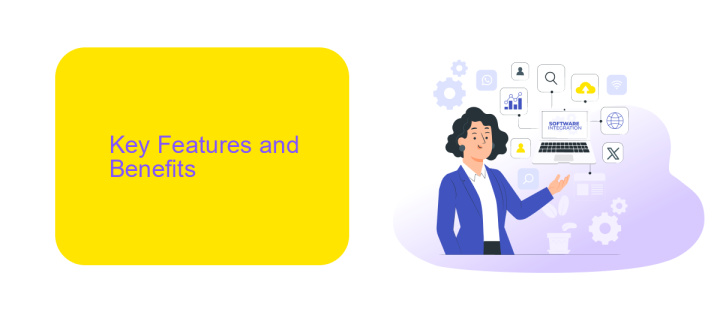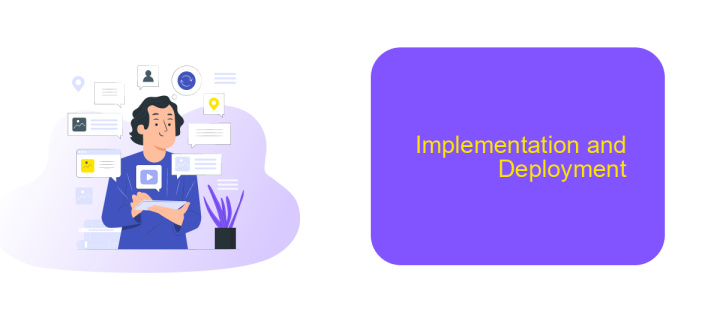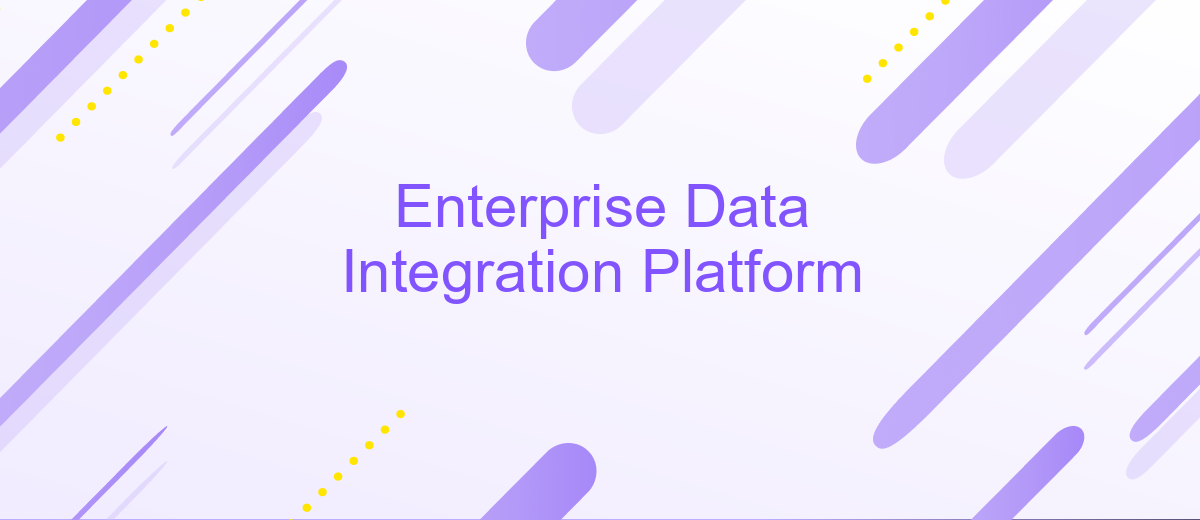Enterprise Data Integration Platform
In today's fast-paced digital landscape, businesses are inundated with vast amounts of data from diverse sources. An Enterprise Data Integration Platform serves as a crucial solution, seamlessly unifying disparate data streams into a cohesive, accessible system. This platform empowers organizations to make data-driven decisions, enhance operational efficiency, and gain a competitive edge in the market.
Introduction
In today's data-driven world, businesses need efficient ways to integrate data from various sources to make informed decisions. An Enterprise Data Integration Platform (EDIP) serves as a comprehensive solution for consolidating, managing, and analyzing data from disparate systems. It ensures seamless data flow across an organization, enhancing operational efficiency and decision-making capabilities.
- Automated data synchronization and transformation
- Support for diverse data sources and formats
- Real-time data integration and monitoring
- Scalability to accommodate growing data needs
- Enhanced data security and compliance
One such platform that excels in these areas is ApiX-Drive. It provides robust tools for setting up and managing integrations without requiring extensive technical expertise. With ApiX-Drive, businesses can automate workflows, reduce manual data handling, and ensure data accuracy across all integrated systems. This makes it an invaluable asset for any enterprise looking to optimize its data management strategy.
Key Features and Benefits

Our Enterprise Data Integration Platform offers seamless connectivity across various data sources, ensuring that your business operations remain efficient and streamlined. With its intuitive interface, users can easily configure and manage data flows without extensive technical expertise. The platform supports real-time data synchronization, allowing for up-to-date information to be readily available across all integrated systems, thus enhancing decision-making processes and operational efficiency.
One of the standout features is its compatibility with ApiX-Drive, a powerful tool that simplifies the integration process. ApiX-Drive enables users to connect different applications and automate workflows with ease, reducing the time and effort required for manual data handling. Additionally, the platform ensures high levels of data security and compliance, safeguarding your sensitive information. By leveraging these features, businesses can achieve greater scalability, flexibility, and overall performance in their data management strategies.
Architectural Overview

The Enterprise Data Integration Platform is designed to facilitate seamless data flow across various systems within an organization. Its architecture ensures scalability, reliability, and real-time data processing, making it essential for businesses aiming to integrate diverse data sources efficiently.
- Data Sources: The platform supports multiple data sources, including databases, APIs, and cloud storage.
- Integration Layer: This layer handles the transformation and routing of data between different systems, ensuring data consistency and integrity.
- Processing Engine: A robust engine that processes data in real-time, enabling timely insights and decision-making.
- Security: Comprehensive security measures are implemented to protect data at rest and in transit.
- Monitoring and Management: Tools for monitoring data flows and managing integrations, such as ApiX-Drive, provide an intuitive interface for configuring and maintaining integrations.
By leveraging these architectural components, the Enterprise Data Integration Platform enhances operational efficiency and supports data-driven strategies. The inclusion of services like ApiX-Drive simplifies the integration process, allowing businesses to focus on core activities while ensuring reliable data connectivity.
Implementation and Deployment

The implementation of an Enterprise Data Integration Platform begins with a thorough assessment of existing data sources and workflows. This involves identifying key data repositories, understanding data formats, and mapping out the integration points. A comprehensive plan is then developed to ensure seamless data flow across the organization.
Deployment involves setting up the platform in a scalable and secure environment. This typically includes configuring servers, databases, and network components. Special attention is given to data security and compliance requirements to safeguard sensitive information.
- Assess existing data infrastructure
- Develop a detailed integration plan
- Configure servers and databases
- Ensure data security and compliance
To streamline the integration process, tools like ApiX-Drive can be utilized. ApiX-Drive offers a user-friendly interface for connecting various data sources and automating data workflows. Its pre-built connectors and flexible integration options make it an ideal choice for enterprises aiming for efficient and reliable data integration.
Case Studies and Best Practices
One of the most compelling case studies involves a multinational retail company that leveraged an Enterprise Data Integration Platform to streamline their operations. By integrating various data sources such as sales, inventory, and customer feedback, the company achieved a unified view of their business metrics. This integration enabled real-time decision-making, leading to a 20% increase in sales and a 15% reduction in inventory costs. The use of ApiX-Drive facilitated the seamless connection between their ERP, CRM, and e-commerce platforms, ensuring data consistency and accuracy.
In another instance, a healthcare provider utilized an Enterprise Data Integration Platform to improve patient care and operational efficiency. By consolidating patient records, appointment schedules, and billing systems, the provider was able to reduce administrative overhead and enhance patient experience. The integration process was simplified using ApiX-Drive, which allowed for the automatic synchronization of data across different systems. This not only minimized manual entry errors but also ensured that healthcare professionals had access to up-to-date patient information, ultimately improving treatment outcomes.
FAQ
What is an Enterprise Data Integration Platform?
How does an Enterprise Data Integration Platform improve data quality?
What are the key features to look for in an Enterprise Data Integration Platform?
Can an Enterprise Data Integration Platform be used for automating workflows?
How do I ensure the security of my data when using an Enterprise Data Integration Platform?
Time is the most valuable resource in today's business realities. By eliminating the routine from work processes, you will get more opportunities to implement the most daring plans and ideas. Choose – you can continue to waste time, money and nerves on inefficient solutions, or you can use ApiX-Drive, automating work processes and achieving results with minimal investment of money, effort and human resources.

